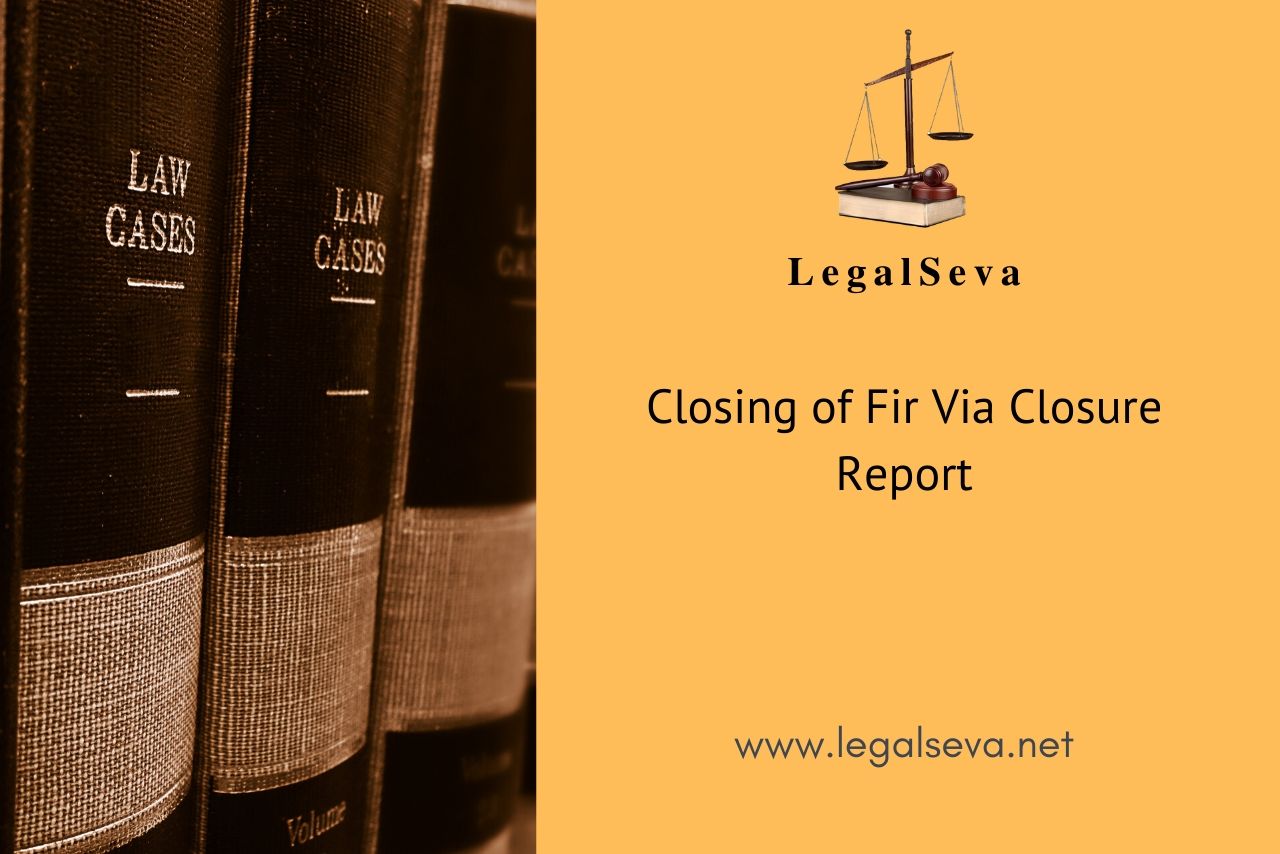Last Updated on December 5, 2018 by Legalseva.net
The term “report” has been defined to mean “to give an account of, to relate, to tell, to convey or disseminate information, communicate; deliver information; make an announcement; make known; speak about, specify”. It is a formal oral or written presentation of facts or a recommendation for action. The term “police report” has been defined under the Code of Criminal Procedure. According to CrPC, a police report means “a report forwarded by a Police Officer to a Magistrate under sub section (2) of Section 173.”
Also Read- ARREST SEARCH AND SEIZURE LAW IN NDPS
The registration of FIR and filing of FIR are two different things. Merely a FIR has been registered would not ipso facto mean that in all the circumstances the police has to file the charge sheet. After the FIR is lodged, it is for the police to investigate the matter.Once the FIR (First Information Report) is registered by the police, there is no option left other than to file a charge sheet against the culprit or to submit one of the following reports-
- The police submit a detail investigation report in the concerned court that the case is true but remains undetected despite of all possible efforts by police to detect.
- The police file a closure report which states that through investigation police came to the conclusion that the FIR was maliciously registered and there is no substantial evidence against the accused.
- The police submit a summary report that the FIR was registered by the complainant due to some misunderstanding between the parties, and the same has been given in writing to the police by the complainant.
Also Read- APPLY FOR BAIL BUT WHEN AND HOW?
However, it is a discreet will of the court whether to accept the report or not. Police can file the charge sheet when the accused has been arrested and there is sufficient evidence against him.
The closure report by the police pertains to Section 169 of CrPC. According to this Section, “If, upon an investigation, it appears to the officer in charge of the police station that there is not sufficient evidence or reasonable ground of suspicion to justify the forwarding of the accused to a Magistrate, such officer shall, if such person is in custody, release him on his executing a bond, with or without sureties, as such officer may direct, to appear, if and when so required, before a Magistrate empowered to take cognizance of the offence on a police report, and to try the accused or commit him for trial.” Thus, if after completing the investigation, the police come to a conclusion that no offence is made out then the police is well within its right to file the closure report subject to approval by the court concerned after hearing the complainant.
Also Read- ANTICIPATORY BAIL BASICS
The 41st report of the Indian Law Commission recommended that an accused person must get a fair trial in accordance with the principles of natural justice, efforts must be made to avoid delay in investigation and trial and the procedures should aim at ensuring fair deal to the poorer sections of the society.Accordingly, the investigating authorities have been empowered to submit the closure report to the magistrate when there is no evidence or reasonable grounds or suspicion to justify the forwarding of the accused to the Magistrate, and also to release the accused from the custody on his executing a bond with or without surety, as the police officer direct, to appear, if and when so required, before a Magistrate empowered to take cognizance of the offence on a police report and to try the accused or commit for trial.The Magistrate however, can direct the police to make further investigation. The scope of the power to direct further investigation when the police report states that there is no evidence to proceed further,and really there is no evidence in the case at all,whether it would be an order which can be justified or held valid needs examination.
Also Read- ACQUITTAL UNDER PREVENTION OF CORRUPTION (PC) ACT
Therefore, the fair investigation requires that the police should thoroughly examine the entire evidence to find out whether any prime-facie is made out against the accused. If no case is made out, there should be a closure report under Section 169 which will be regarded as a report under Section 173 CrPC. It is again the duty of the Magistrate to find out whether there is any material on record to proceed against the accused. If there is no material to proceed further, there is no point in taking cognizance. In other words,the fair investigation and trials need the protection of an accused from unwanted and vexatious prosecutions to avoid harassment to persons concerned.
For more info, please dial 99888-17966


